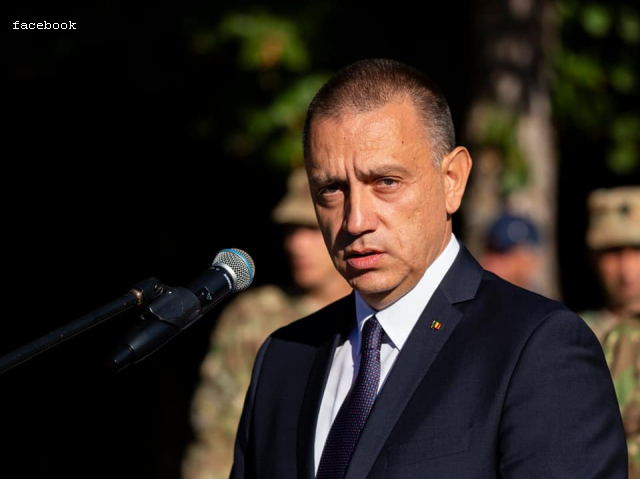NATO, from the Black Sea region to cyber security
During its term at the helm of the EU Council, Romania will pay special attention to consolidating trans-Atlantic relations

Roxana Vasile, 05.10.2018, 12:51
Euro-Atlantic security was this week in the spotlight at the NATO Defense Ministers meeting held in Brussels. This was the first meeting of this kind, chaired by NATO Secretary General Jens Stoltenberg, after the Warsaw summit this July. Talks focused, among other things, on the fair distribution of responsibilities among allies. European defense also ranked high on the agenda, NATO officials expressing concern that Russia is endangering international provisions and regulations it pledged to observe as part of the Intermediate-Range Nuclear Forces Treaty (INF), also engaging in hybrid, information and cyber warfare. Talks also tackled the Black Sea region, to the overt content of Romania’s Defense Minister Mihai Fifor.
Mihai Fifor: “We believe that right now we are the main provider of security in this rather complex region. Moreover, we have discussed about trans-Atlantic relations, a matter of great concern for NATO, so as to avoid duplication between NATO and the European Union, against the backdrop of France and Germany shifting positions within the EU as well as against a growing interest in European collective defense. These matters are extremely important, especially as Romania is taking over the presidency of the Union in 2019 and expectations are high in that respect”.
The meeting’s agenda also included Georgia’s bid to join NATO. Mihai Fifor: “We have supported Georgia’s NATO aspirations and we maintain our posture. I recall that Romania’s Embassy in Georgia hosted a NATO representation a while back. Although Georgia is not a NATO member state, it is allotting 2% of its GDP to defense spending. Georgia is, perhaps, the third- or the fourth-largest contributor of troops to Afghanistan, meeting all obligations it has pledged towards NATO, something which greatly helps its cause”.
According to Minister Fifor, the NATO meeting provided an additional opportunity for talks with US Secretary of Defense, James Mattis, who again expressed support for setting up an Allied Army Corps Command on Romania’s territory, as well as rendering the NATO Brigade in Craiova, southern Romania, fully operational in terms of troops.
Last but not least, the Defense Ministers also discussed Trident Juncture 2018, the largest military exercise NATO has organized, scheduled to begin on October 25 and to end on November 7. The exercise is a massive defense military drill in the event of an attack on a member state. Over 45,000 military from 31 allied and partners states will take part in the event, around 150 aircraft, 60 ships and up to 10,000 armored vehicles. Trident Juncture 2018 is a strategic exercise aimed at backing official statements amidst escalating tension in the Alliance’s relations with Russia.






























